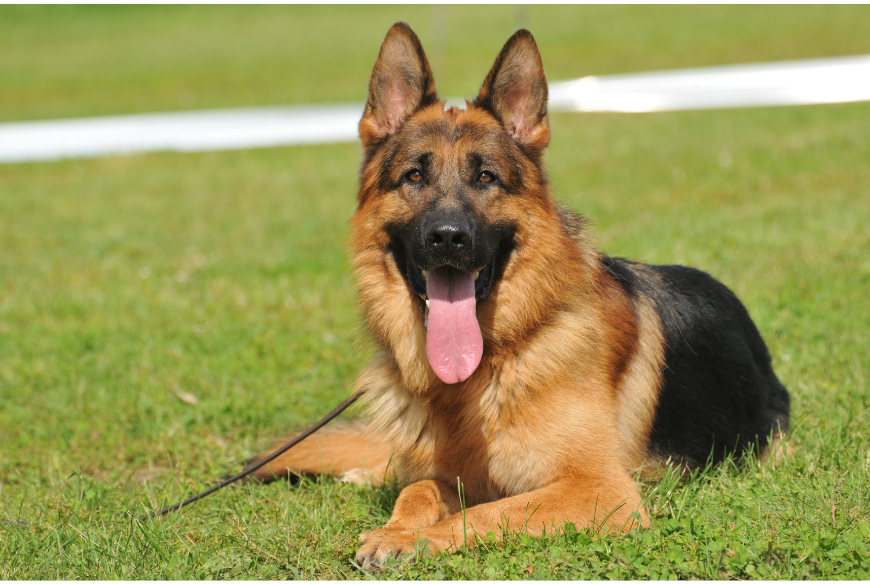Gastric dilatation and volvulus (GDV) is a serious and life-threatening condition that affects some large and deep-chested dog breeds, including German Shepherds. GDV occurs when the stomach fills with gas and twists on itself, blocking the passage of food and water and cutting off the blood supply to the stomach and other organs. If not treated quickly, GDV can cause shock, organ damage, and death.
Symptoms of GDV in German Shepherds include:
- Bloating or swelling of the abdomen
- Retching or trying to vomit without bringing anything up
- Drooling or salivating excessively
- Pain or discomfort in the stomach area
- Pale or blue gums
- Weakness or collapse
Contact your vet immediately if you notice these signs in your German Shepherd. GDV is an emergency that requires immediate surgery to untwist the stomach and prevent further complications. Your vet may also need to remove the spleen or part of the stomach if the twist damages them.
Treatment of GDV in German Shepherds involves:
- X-rays or scans to confirm the diagnosis and assess the extent of the twist
- Fluid therapy to stabilize the blood pressure and prevent shock
- Decompression of the stomach to release some of the gas
- Surgery to untwist the stomach and fix it in place to prevent recurrence (gastropexy)
- Pain relief to make your dog more comfortable
- Antibiotics to prevent infection
- Close monitoring for post-operative complications such as bleeding, infection, or peritonitis
The prognosis for GDV in German Shepherds depends on several factors, such as how quickly the condition is diagnosed and treated, how severe the twist is, and how much damage is done to the stomach and other organs. The survival rate for dogs with GDV ranges from 60% to 85%, depending on the study. Some dogs may need additional surgery or medical treatment if they develop complications.
Prevention of GDV in German Shepherds involves:
- Feeding your dog smaller meals more frequently rather than one large meal a day
- Avoiding dry food that expands in the stomach or food that causes gas
- Avoiding exercise or excitement before or after eating
- Keeping your dog calm and stress-free
- Having your dog checked regularly by your vet for any signs of gastrointestinal problems
- Considering preventive gastropexy if your dog has a high risk of GDV
GDV is a severe condition affecting German Shepherds and other large-breed dogs. Recognizing the symptoms and seeking veterinary attention as soon as possible is essential. Many dogs can survive GDV and recover well with prompt diagnosis and treatment.



